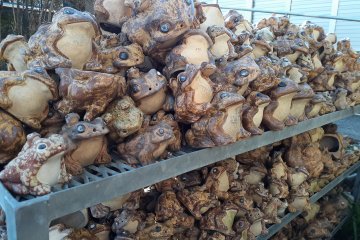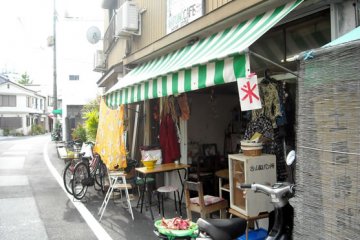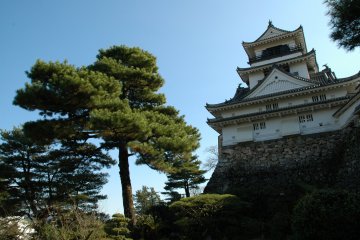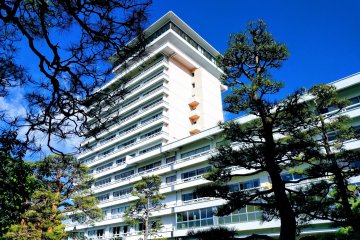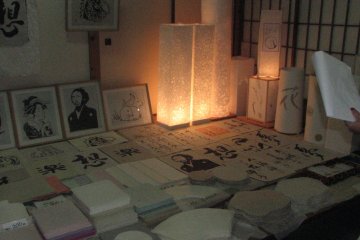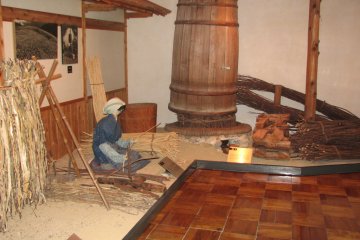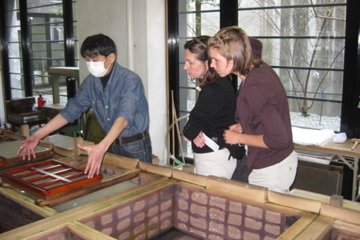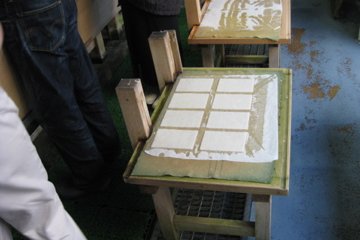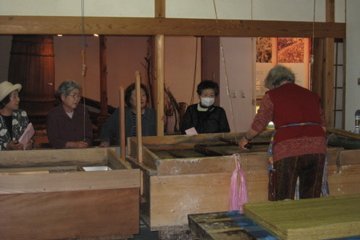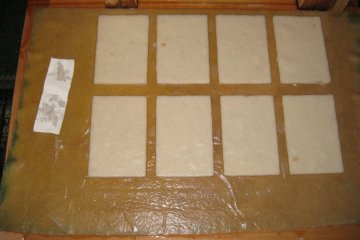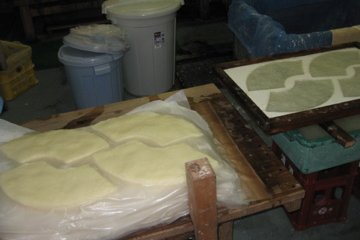Kochi Prefecture was previously called Tosa, and Tosa Washi (paper) is famous throughout Japan. The area, and especially Ino Town, has over a 1000-year papermaking history. Today Kochi still produces a lot of handmade and industrial paper, and young people are being trained to continue the tradition on into the next generations.
Ino Town’s natural surroundings and the clear, clean water of the nearby Niyodo River make it a perfect location for papermaking. Ino produces many kinds of paper for various uses from stationary to fans to umbrellas to paper lanterns.
If you are at all interested in crafts or traditional Japan I highly recommend this museum. Though the exhibits are all in Japanese, we were provided with a fairly detailed English pamphlet and many exhibits were self-explanatory. Making our own paper was definitely the highlight of the visit. A master craftsman walked us through the process, and you don’t really need Japanese to understand what to do as he demonstrated each step. First, we stirred up pulpy bins of cold water with our hands. Then we quickly dunked sieve trays into the mixtures and shook them around until the pulp settled on the bottom. After draining them we pressed the sheets down flat to dry. After repeating the process and adding a second layer, we set the sheets on a big stainless steel dryer. Finally, after some hand rolling and scraping we pressed them again in a roller machine. The final product had awesome texture and an off white color, with tiny flecks of bark or tree material pressed into it.
If you are planning to try this you should do it before exploring the museum. Reservations are not required. The first steps take about 20 minutes, and then you must wait for the paper to dry about 30 minutes, which is enough time for you to see most of the museum. In the end you take home 8 post-card size pieces of stationary-like paper.
The 1st and 2nd floors of the museum show traditional implements, paper uses, industrial processes, etc. The 1st floor also features the paper workshop, and you can watch employees working there as well. For only 50 yen you can take a piece of scrap paper and press it into one of several kanji designs that you paint with black calligraphy ink—a nice souvenir for those who don’t want to spend the time to make a full paper set. A special exhibit hall on the 3rd floor was showcasing some Japanese beach photos when we visited. Make sure to leave enough time to check out the extensive gift shop as well.
Head out into the countryside and back in time at Ino Paper Museum! This off-the-beaten-track place is truly a cultural gem.



